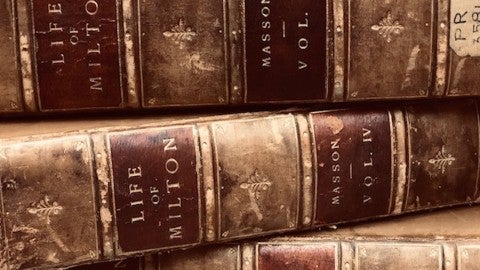 ENGL 101*: What is a Fact?
ENGL 101*: What is a Fact?
Monday, Wednesday, Friday 10:00-10:50 a.m.
>>Instructor: Timothy Morton
>>CRN: 25078
Whether in science, social sciences or humanities, all students benefit from this essential training in how to discover and interpret the world and its facts. Training in discovery and interpretation is the role of the humanities and literary studies. This class teaches critical thinking and imagination, the fuels of reason.
This course fulfills needs of students across the disciplines to understand the crucial search for meaning in social life, politics and culture. Students who complete the course are well prepared for studying the broad range of topics and approaches to interpretation that informed world citizenship demands today.
Satisfies:
*D1
 ENGL 114: Intro to Literary Editing & Publishing/Rice Review
ENGL 114: Intro to Literary Editing & Publishing/Rice Review
Tuesday 6:30-9:00 p.m.
>>Instructor: Ian Schimmel
>>CRN: 24100
Taught in the Spring, Literary Editing & Publishing/The Rice Review is the second course recommended to students desiring practical skills in the fields of literary editing and publishing. Experiential in nature, this class engages students in the real considerations and hands-on experience of publishing Rice’s nationally award-winning undergraduate literary journal, The Rice Review. Enrolled students will participate in weekly editorial meetings to read and discuss the merits of undergraduate submissions across literature’s three main genres: poetry, fiction, and creative non-fiction. Students will discuss a diverse group of submissions in the workshop setting, refine their editorial skills through written critiques, and enlarge their understanding of the editing process. Later in the term, students will become proficient with Adobe's InDesign layout software and create final magazine spreads that demonstrate an attention to the interplay of text and image. Students will also be asked to become practitioners of “literary citizenship.” This will come about through participation at outside literary events and through the hands-on experience of planning and hosting The Rice Review’s Spring Launch Event. All students will be considered official staffers for the magazine and will be acknowledged in that year’s annual issue. Course counts towards the English Creative Writing Major Concentration (ECRW) and the Minor in Creative Writing (CREW). In order to control course demand, registration is by permission of the instructor. Please reach out to ianschimmel@rice.edu to register or with inquiries. ENGL 113 is a prerequisite for ENGL 114, or permission from the instructor is required.
Satisfies:
English Creative Writing Concentration (ECRW)
Creative Writing Minor (CREW)
 ENGL 200*: Gateways to Literary Study (two sections offered)
ENGL 200*: Gateways to Literary Study (two sections offered)
Monday, Wednesday, Friday 1:00-1:50 p.m.
>>Instructor: Timothy Morton >>CRN: 21665
Monday, Wednesday, Friday 10:00-10:50 a.m.
>>Instructor: Betty Joseph >>CRN: 20171
This course is designed for and required of all prospective English majors, and should be taken in the first or sophomore year. Emphasis is on close reading, literary interpretation, and critical writing. Attention is paid to the major genres (poetry, drama, and fiction) across a range of historical periods. Open to all students with priority to declared majors and minors.
Note to all current and potential English majors/minors: Due to the popularity of ENGL 200, if the section of ENGL 200 you want appears to be full, please contact the instructor to receive a "special registration/override” via ESTHER.
Satisfies:
*D1
Training the Imagination: English major requirement
Training the Imagination: English minor requirement (ENGM)
 ENGL 203: Topics in Creative Writing: Writing Family
ENGL 203: Topics in Creative Writing: Writing Family
Tuesday, Thursday 1:00-2:15 p.m.
>>Instructor: Andrea Bajani
Tolstoy's Anna Karenina famously opens: "All happy families are alike; each unhappy family is unhappy in its own way." No matter the amount of joy or despair there is in a house, writing the family has always meant going straight to fundamental questions. Who are we? Who--or what--do we belong to? Where do we look for protection? What do we want to escape? What is our truth? In order to tell the truth about himself, Franz Kafka had to write a letter to his father--a letter he never delivered. In memoirs, non-fiction, novels, diaries, and poetry, writers like Philip Roth, Annie Ernaux, Joan Didion, Richard Ford, and Kiese Laymon have taken on the topic of family from a range of perspectives, allowing their stories to reach a rare and specific intensity, an inspiration and a tenderness, that is otherwise almost impossible to achieve. In this course, we will read diverse examples of family writing and will compose our own, both following these models and inventing new ones. Course counts toward the English Creative Writing Major Concentration (ECRW) and Creative Writing Minor. Registration for odd-numbered sections is restricted to students who have declared the Creative Writing Major Concentration (ECRW); registration for even numbered sections is open to all undergraduate students in priority order.
Satisfies:
English Creative Writing Concentration (ECRW)
Creative Writing Minor (CREW)
 ENGL 238: Transcultural Comics
ENGL 238: Transcultural Comics
Monday, Wednesday, Friday 9:00-9:50 a.m.
>>Instructor: Ofra Amihay
>>CRN: 25496
This new course offers a diverse survey of comics and graphic novels from the early days of comics to present graphic novels. As such, it introduces English majors to a unique body of literary works that utilize a medium which is hybrid by nature and that often produces multifaceted narratives. By addressing works by authors of various backgrounds and touching on numerous issues from immigration and ethnicity to religion and queer identity, this course can serve as an ideal free elective course, while potentially enriching several existing minors. These include first and foremost Jewish Studies, but also Religious studies, Women, Gender & Sexuality studies, and African American studies.
Satisfies:
Diverse Traditions: Critical Race, Postcolonial & Gen Studies (RPG)
Meets English major specialization/s: CSC; VCM
 ENGL 263*: Latinx Writing Lab
ENGL 263*: Latinx Writing Lab
Monday, Wednesday, Friday 10:00-10:50 a.m.
>>Instructor: José Aranda
>>CRN: 25080
The Latinx Research and Writing Lab surveys current research topics and methods in fields expressly focused on U.S. Latinx communities. The Latinx Lab support students who are interested in the actual conversion of research into a research paper, poster, or some multi-media format.
Satisfies:
*D1
Diverse Traditions: Critical Race, Postcolonial and Gender Studies (RPG)
Meets Rice English major specialization: CSC
 ENGL 269*: Science Fiction & the Environment
ENGL 269*: Science Fiction & the Environment
Tuesday, Thursday 2:30-3:50 p.m.
>>Instructor: Casey Williams
>>CRN: 25111
Examines the ways that science fiction has expressed and challenged ideas about nature, culture, society, and politics.
Satisfies:
*D1
Meets Rice English major specializations: CSC; SME
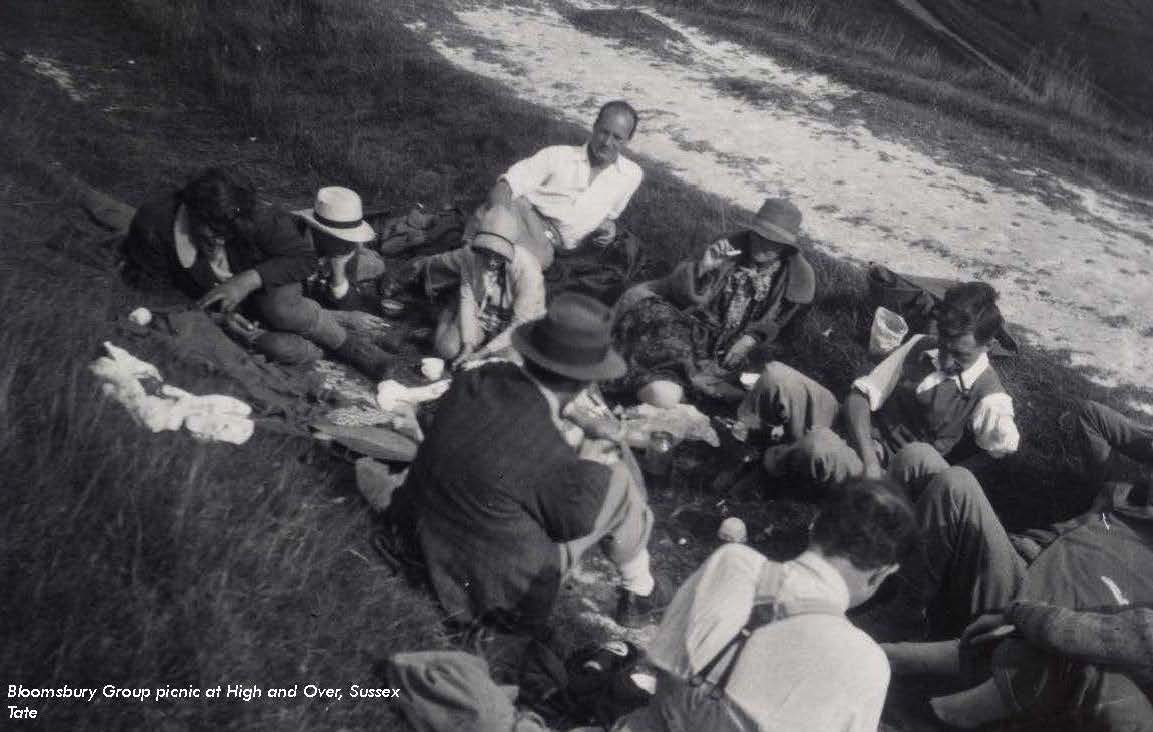 ENGL 270*: Aspects of Modern Literature
ENGL 270*: Aspects of Modern Literature
Tuesday, Thursday 9:25-10:40 a.m.
>>Instructor: Merrill Turner
>>CRN: 25636
The first half of the twentieth century was a time of great change, experiment, and generational calamity in Britain and its empire, as well as the world beyond. International conflicts, domestic social unrest and reform, and the advent of modernism in literature and other arts, conspired to challenge received notions of human nature itself. This course will explore foundational texts of modernism in their broader contexts, as well other works that enrich more familiar voices of the “canon.” Authors whose work we will consider may include: Virginia Woolf, James Joyce, T.S. Eliot, E. M. Forster, Mulk Raj Anand, Jean Rhys, Elizabeth Bowen, Sam Selvon, W. B. Yeats, and Samuel Beckett.
Satisfies:
*D1
Meets Rice English major specializations: CSC; LLH
 ENGL 272*: Literature & Medicine
ENGL 272*: Literature & Medicine
Monday, Wednesday, Friday 11:00-11:50 a.m.
>>Instructor: Cameron Dezen Hammon
>>CRN: 23170
Designed for, but not limited to, students interested in the medical profession, this course introduces the study of medicine through reading imaginative literature--novels, plays, essays, poems--by and about doctors and patients, focusing on understanding ethical issues and on developing critical and interpretive skills.
Satisfies:
*D1 and AD (Analyzing Diversity)
Meets Rice English major specializations: SME; VCM
Medical Humanities Minor-approved/eligible: MDHM
 ENGL 279*: Black Sci-Fi
ENGL 279*: Black Sci-Fi
Tuesday, Thursday 9:25-10:40 a.m.
>>Instructor: Nicole Waligora-Davis
>>CRN:25081
This new course examines how black science and speculative fiction worries the division between reality and fantasy; challenges the fictions embedded in our national histories; and underscores the social, economic, and political inequities short-circuiting the lives of brown and black peoples around the world. Focusing on works from Octavia Butler to Victor Levalle, from George Schuyler to Mat Johnson, from John Williams to Colson Whitehead among others, the course engages the ways in which these authors represent the monstrous and grotesque; pandemics, environmental and technological degradation and catastrophe; urbanization, gentrification, and immigration; and (biological/technological) warfare, in order to recalibrate our understanding of the central role race plays in determining both access to, and allocation of, necessary resources. We will track the histories and afterlives of slavery and colonialism that continue to transfigure our society, while also studying varied blueprints for, and critiques of, alternative, more egalitarian societies imagined by these artists.
Satisfies:
*D1
Diverse Traditions: Critical Race, Postcolonial and Gender Studies (RPG)
Meets Rice English major specializations: CSC; LLH
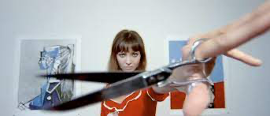 ENGL 286*: Classic & Contemporary Film (cross-list HART 286)
ENGL 286*: Classic & Contemporary Film (cross-list HART 286)
Tuesday, Thursday 10:50 a.m.-12:05 p.m.
>>Instructor: Ed Snow
>>CRN: 24652
In this course we’ll study ten of the very best films that have been made around the world since 1930 (we won’t attempt silent cinema). Our goal will be to develop a nuanced appreciation for what it is about film that allows us to engage with it so deeply when it’s at its best. Our focus will be on details and our writing will emphasize description. Assignments and class discussions will typically concentrate on short, key sequences, single frames, and highly visual motifs. “Feelings” will also be essential: the idea is to connect with the heart of these movies, but to do so via “particular knowledge” (William Blake’s term) that requires us always to be looking. No prior expertise in film is necessary for immersion in this course. We’ll learn the nuts and bolts of film language as we proceed.
Satisfies:
*D1
Meets Rice English major specialization: VCM
 ENGL 300: Practices of Literary Study (two sections offered)
ENGL 300: Practices of Literary Study (two sections offered)
Tuesday, Thursday 10:50 a.m.-12:05 p.m.
>>Instructor: Scott Derrick >>CRN: 20119
Monday, Wednesday, Friday 1:00 p.m.-1:50 p.m.
>>Instructor: Ragini Tharoor Srinivasan >>CRN: 25082
This course explores the relation of literary and other cultural texts to key concepts in literary and cultural theory. In their reading and writing, students engage a variety of theoretical problems and modes of reading, among them close textual analysis, critical attention to representation of the (racial, gendered, sexual, class) subject, and what it means to read a text’s relation to philosophical traditions, power relations, history, and empire. ENGL 300 is to be taken after ENGL 200, ideally in the spring of the sophomore or fall of the junior year.
Satisfies:
English major requirement-Theoretical Concepts and Methods
 ENGL 301*: Intro to Fiction Writing (two sections offered)
ENGL 301*: Intro to Fiction Writing (two sections offered)
Tuesday, Thursday 9:25-10:40 a.m.
>>Instructor: Andrea Bajani
Wednesday 2:00-4:50 p.m.
>>Instructor: Bryan Washington
A course that teaches the fundamentals of fiction writing, and includes a mixture of reading and writing assignments. The goal is for each student to produce two short stories possessing imaginative ingenuity, structural integrity, and literary merit by the end of the semester. The course counts toward the English Creative Writing Concentration (ECRW). Seating is limited. Registration for odd-numbered sections is restricted to students who have declared the Creative Writing Major Concentration (ECRW); registration for even numbered sections is open to all undergraduate students in priority order.
Satisfies:
*D1
English Creative Writing Concentration (ECRW)
Creative Writing Minor (CREW)
 ENGL 302: Screenwriting
ENGL 302: Screenwriting
Monday 4:00-6:50 p.m.
>>Instructor: Amber Dermont
This course will introduce students to the art and craft of screenwriting through a focused study of terminology, formatting and cinematic technique. Assignments will include writing exercises, weekly viewing of films and reading of screenplays. Students will write their own treatments, outlines and full-length screenplays. Course counts toward the English Creative Writing Concentration (ECRW) and the Creative Writing Minor (CREW). Seating is limited. Registration for odd-numbered sections is restricted to students who have declared the Creative Writing Major Concentration (ECRW); registration for even numbered sections is open to all undergraduate students in priority order.
Satisfies:
English Creative Writing Concentration (ECRW)
Creative Writing Minor (CREW)
Meets English major specialization: VCM
 ENGL 304*: Intro to Poetry Writing
ENGL 304*: Intro to Poetry Writing
Tuesday 1:00-3:30 p.m.
>>Instructor: Leslie Contreras Schwartz
An introduction to poetry writing through the study of contemporary poets and the writing of poems. The class will pay extensive attention to such elements of poetry as imagery, figurative language, tone, syntax, and form in order to create a vocabulary for students to discuss their own poems. Students' poems will be critiqued by the class in a workshop setting. Course counts toward the English Creative Writing Major Concentration (ECRW) and the Creative Writing Minor (CREW). Registration for odd-numbered sections is restricted to students who have declared the Creative Writing Major Concentration (ECRW); registration for even numbered sections is open to all undergraduate students in priority order.
Satisfies:
*D1
English Creative Writing Concentration (ECRW)
Creative Writing Minor (CREW)
 ENGL 306: Topics in Fiction Writing - "Short Story"
ENGL 306: Topics in Fiction Writing - "Short Story"
Tuesday 4:00-6:30 p.m.
>>Instructor: Bryan Washington
A course that expands and advances the fundamentals of flash fiction writing, primarily through a mixture of weekly reading and writing assignments. The goal is for each student to study motifs and themes in works of fiction ranging from 100 to 1500 words, culminating in a portfolio possessing imaginative ingenuity, structural integrity, and literary merit by the end of the semester. Course counts toward the English Creative Writing Major Concentration (ECRW) and Creative Writing Minor. Registration for odd-numbered sections is restricted to students who have declared the Creative Writing Major Concentration (ECRW); registration for even numbered sections is open to all undergraduate students in priority order.
Satisfies:
English Creative Writing Concentration (ECRW)
Creative Writing Minor (CREW)
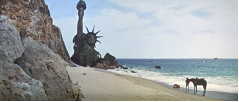 ENGL 306: Topics in Fiction Writing - "The End of the World as We Know It: Writing (and Reading) Apocalypse
ENGL 306: Topics in Fiction Writing - "The End of the World as We Know It: Writing (and Reading) Apocalypse
Monday 2:00-4:50 p.m.
>>Instructor: Justin Cronin
A course in creative prose writing, in which students will be considering the social, psychological, and metaphysical underpinnings of apocalyptic literature while embarking on their own end-of-the-world writing projects. We will read several touchstone novels of the genre, watch a number of films, and generally contemplate the notion that we are, in the end, just another species, roaming the earth until we stop. Students will produce two manuscripts for workshop, one fiction and one non-fiction, although there will be some latitude based on individual student interest. Course counts toward the English Creative Writing Major Concentration (ECRW) and Creative Writing Minor (CREW). Registration for odd-numbered sections is restricted to students who have declared the Creative Writing Major Concentration (ECRW); registration for even numbered sections is open to all undergraduate students in priority order.
Satisfies:
English Creative Writing Concentration (ECRW)
Creative Writing Minor (CREW)
 ENGL 309: Topics in Creative Nonfiction Writing - "Verses/Versus: Miseducation of Lauryn Hill v. good kid m.A.A.d. city (or 1998 vs. 2012)
ENGL 309: Topics in Creative Nonfiction Writing - "Verses/Versus: Miseducation of Lauryn Hill v. good kid m.A.A.d. city (or 1998 vs. 2012)
Thursday 4:00-6:50 p.m.
>>Instructor: Kiese Laymon
This class will creatively explore the artistry and sociopolitical context of both albums and eras, while encouraging students to write their own album reviews, artist features, and craft essays.
Satisfies:
English Creative Writing Concentration (ECRW)
Creative Writing Minor (CREW)
 ENGL 310: Nonfiction Nature Writing
ENGL 310: Nonfiction Nature Writing
Tuesday 1:00-3:50 p.m.
>>Instructor: Lacy M. Johnson
When we speak of nature,” Emerson wrote, “we have a distinct but most poetical sense in the mind.” Romantic poets in particular (as well as certain transcendental philosophers!) have encouraged us to think of nature as an undisturbed essence, a wildness, a “somewhere” that stands separate and apart from human influence. And yet, the idea of “nature” itself is the product of human imagination. In this creative writing seminar, we’ll explore some of the ways that creative nonfiction can become a vehicle for questions about how else we might imagine our relationship to the world, and we’ll look at some of the myriad ways these relationships have been documented in essays, memoirs, and narrative nonfiction. As we consider these texts, our emphasis will be on finding ways to reconsider received wisdom about “nature.” To that end, we’ll spend considerable time this semester outdoors, including, perhaps, engaging in field work, conducting interviews, foraging for wild plants, planting marsh grass, studying native ecosystems, and taking time to consider the ways we interrupt, intersect, and care for the living world around us. But more than anything else, this is a course in writing, and we will learn to write in ways that navigate the precarious terrain of personal experience, observation, science, research, memory, and facts. Students should be prepared to become mired in the complexity and contradictions of nature, including and especially our own. Course counts toward the English Creative Writing Major Concentration (ECRW) and Creative Writing Minor. Registration for odd-numbered sections is restricted to students who have declared the Creative Writing Major Concentration (ECRW); registration for even numbered sections is open to undergraduate students in priority order.
Satisfies:
English Creative Writing Concentration (ECRW)
Creative Writing Minor (CREW)
Meets English major specialization: SME
 ENGL 311: Topics in Medieval Literature and Culture - "Infectious Ideas"
ENGL 311: Topics in Medieval Literature and Culture - "Infectious Ideas"
Tuesday, Thursday 9:25-10:40 a.m.
>>Instructor: Emily Houlik-Ritchey
>>CRN: 25085
This class will explore the social and cultural worlds of disease and unwellness in the English Middle Ages, as evidenced by its literature. From leprosy to plague, from fits of madness to social anxiety, and from birth defects to elf shot (yes, really), we will interrogate what medieval folk considered to be legitimate risks to their health and wellbeing. This study will enable a better understanding of the ways that culture and society influence our understanding of medicine and illness, in the medieval period or any other.
Satisfies:
Meets English major & minor field (ENGM): Historical Foundations - periods before 1800
Meets English major specialization/s: LLH
 ENGL 319: Fantasy & Science Fiction Writing
ENGL 319: Fantasy & Science Fiction Writing
Wednesday 3:00-5:30 p.m.
>>Instructor: Amber Dermont
In this class students will read, discuss and analyze a variety of classical and contemporary genres in order to compose and revise adaptations and original versions of fantasy and science fiction stories. Course counts toward the English Creative Writing Concentration (ECRW) and Creative Writing Minor. Registration for odd-numbered sections is restricted to students who have declared the Creative Writing Major Concentration (ECRW); registration for even numbered sections is open to all undergraduate students in priority order.
Satisfies:
English Creative Writing Concentration (ECRW)
Creative Writing Minor (CREW)
 ENGL 328: John Milton the Radical
ENGL 328: John Milton the Radical
Tuesday, Thursday 1:00-2:15 p.m.
>>Instructor: Ed Snow
>>CRN: 25086
This course should really be called “The Other Milton,” since we will be interested in all those errant tendencies in the poet’s work—iconoclastic, feminist, evolutionary, secular-humanist, open-ended, polysemic, deconstructive—that complicate the straight-down-the-middle sensibility (authoritarian, patriarchal) that “Milton” usually signifies. We will concentrate entirely on Paradise Lost, since it takes a semester to even begin to read one’s way into this amazing work. We will deal with historical, political and theological contexts, but our focus will be on close/slow reading; thus the course will be as much about how poetry in general works as about Milton’s particular strategies. We will be especially concerned with how issues of gender play out at the level of the poem’s “minute particulars” (Blake’s phrase). Written work for the course will consist of short, informal class-to-class assignments, and two longer essays. There will be no midterm or final.
Satisfies:
Meets English major & minor field (ENGM): Historical Foundations - periods before 1800
Meets Rice English major specialization: LLH
 ENGL 331*: Person, Animal, Thing - Early Modern Literature & Science
ENGL 331*: Person, Animal, Thing - Early Modern Literature & Science
Monday, Wednesday, Friday 2:00-3:15 p.m.
>>Instructor: Betty Joseph
>>CRN: 25087
Course introduces students to 17th and 18th century English literature that shift the boundaries between the imaginative arts (or humanistic knowledges) and the empirical and universalist agendas of the Scientific Revolution. How did writers capitalize on philosophical and scientific developments with new storytelling forms like—science fiction, utopian tales, and IT-narratives?
Satisfies:
D1*
Meets English major & minor field: Historical Foundations-periods before 1800
Meets English major specialization/s: LLH; SME
 ENGL 339*: Romanticism - Ruins, Race, Revolution
ENGL 339*: Romanticism - Ruins, Race, Revolution
Tuesday, Thursday 2:30-3:45 p.m.
>>Instructor: Alexander Regier
>>CRN: 25502
Romanticism is a historical period and an idea that has shaped our contemporary world. This course examines three core concepts of Romanticism: ruins, race, and revolution. By looking at texts (novels, poems, philosophy, history) and visual art (paintings, film) from the eighteenth century until today students will examine how ruins, race, and revolutions were central to the formation of what we consider key concepts in our lives, such as love, longing, beauty, justice, and equality.
Satisfies:
*D1
Meets English major & minor field (ENGM): Historical Foundations-periods before 1800
Meets English major specialization/s: CSC; LLH
 ENGL 340: Seminar in Public Writing - Writing About and With Poetry
ENGL 340: Seminar in Public Writing - Writing About and With Poetry
Thursday 2:30-5:20 p.m.
>>Instructor: Sarah Ellenzweig
>>CRN: 25089
Take a step back from academic writing and learn how to transfer your skills to a wider reading public. The Calderwood Seminars in Public Writing challenge students in an intimate workshop setting to grow as critics and writers. Throughout the semester, students build a writing portfolio of short-form essays that might include op-eds, book reviews, feature articles, coverage of public talks, and interviews. Classes will include collaborative editing workshops, guest lectures from experts in the writing field, and activities to build a strong writing foundation. You have learned how to write for college, now learn how to write for life.
Satisfies:
Meets English major & minor field (ENGM): Historical Foundations - periods before 1800
Meets English major specialization/s: LLH
 ENGL 343: Jane Austen's Worlds
ENGL 343: Jane Austen's Worlds
Tuesday, Thursday 10:50 a.m.-12:05 p.m.
>>Instructor: Helena Michie
>>CRN: 25090
This course will try to come to terms with Jane Austen as author and as icon. We will read all her published fiction, as well as some of the stories she produced as a child, and will work with her letters and her biography. This course will also be something of a Jane Austen Film Festival: we will look carefully and critically at the recent film and television adaptations of her novels. The course’s bifocal approach will allow us to read Austen's work in two historical contexts: Regency England, which provides a rich background for the political, social, sexual, and formal elements of her work, and the contemporary United States, where she was voted by People one of the Twenty-five Most Intriguing People of 1995 and where she continues to be a presence in cultural artifacts form memes and web narratives to calendars and perfumes.
Satisfies:
Meets English major & minor field (ENGM): Historical Foundations - periods before 1900
Meets English major specialization/s: CSC; LLH
 ENGL 344*: Accounting for Dickens
ENGL 344*: Accounting for Dickens
Monday, Wednesday, Friday 10:00-10:50 a.m.
>>Instructor: Logan Browning
>>CRN: 25092
This course will introduce students to the recent “transpacific turn” in Asian Anglophone and Asian American literary studies. Using the landmark edited collection, Transpacific Studies: Framing and Emerging Field (2014) to situate our theoretical, historical, and methodological approaches, we will engage with novels, short stories, and films that explicitly foreground the “new ways in which Asia is linked to the Americas” (Hoskins & Nguyen).
Satisfies:
*D1
Meets English major & minor field (ENGM): Historical Foundations - periods before 1900
Meets English major specialization/s: CSC; LLH
 ENGL 360*: Constitutions, Colonialism & Chaos - New World Literature
ENGL 360*: Constitutions, Colonialism & Chaos - New World Literature
Monday, Wednesday, Friday 11:00-11:50 a.m.
>>Instructor: Biko Caruthers
>>CRN: 25423
A survey of American literatures spanning the Age of Discovery, Atlantic Revolutions, and onset of the U.S. Civil War. In exploring Eurocentric, Indigenous, and African-diasporic perspectives from this period, students will consider the role of story-telling in history, how power structures try to decide which stories get told, and also how authors like Sor Juana Inés de La Cruz, Phillis Wheatley Peters, and Leonora Sansay, among others still made themselves heard.
Satisfies:
*D1
Meets English major & minor field: (ENGM) Historical Foundations - periods before 1800
Meets English major specialization/s: CSC; LLH
 ENGL 362*: Modern American Fiction-Imagined Futures
ENGL 362*: Modern American Fiction-Imagined Futures
Monday, Wednesday, Friday 11:00-11:50 a.m.
>>Instructor: Stacie Cruz
>>CRN: 25093
Course will investigate the way in which American writers thought about the possibilities of “the future” through literature in the early 20th century. We will examine the utopias and/or dystopias implied or explicit within these texts, and pay careful attention to which populations were imagined to reside within them. And, of course, those who were not. Our main focus will be on the women, disabled people, people of color, and those with so-called deviant sexualities who wrote to assert their place as artists and thinkers, and their place within society as a whole.
Satisfies:
*D1
Meets English major specialization: LLH
 ENGL 368*: Fantasy & the Environment (cross-list ENST 368)
ENGL 368*: Fantasy & the Environment (cross-list ENST 368)
Monday, Wednesday, Friday 9:00-9:50 a.m.
>>Instructor: Megan Oakes
>>CRN: 25094
Most scholars of fantasy have agreed that the unifying feature of this unruly genre is that it narrates the “impossible.” But what even is the impossible? Far from being self-evident, the horizons of possibly are always conditioned by social, cultural, and political understandings of how the world operates. In this course, we will therefore discuss what constitutes the fantastic, how it traverses a contextual dialogic between the possible and the impossible, and what is at stake when the world in these fictions is reimagined with fantastic ecologies.
As such, this course will touch on prominent motifs in fantastic aesthetics—such as the representation of monstrosity and the presence of spectral entities—and will explore how these motifs intersect with major debates in the environmental humanities. Moreover, we will address how these texts represent narratives of violence and the politics of apocalypse in order to understand how these texts not only (mis)represent ecologies, but also how fantastic aesthetics and magical thinking might allow us to reimagine what might be possible within the horizons of the current climate crisis.
Satisfies:
*D1
Meets English major specialization/s: CSC; SME
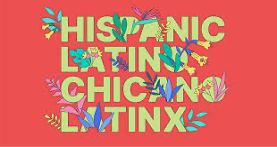 ENGL 371: Chicano/a Literature (cross-list SPAN 396; SWGS 354)
ENGL 371: Chicano/a Literature (cross-list SPAN 396; SWGS 354)
Monday, Wednesday, Friday 2:00-3:15 p.m.
>>Instructor: José Aranda
>>CRN: 25096
A mixed-genre course focusing on the Chicano movement, the Chicano renaissance, and alternative literary and mythic traditions associated with them.
Satisfies:
Meets English major & minor field (ENGM): Critical Race, Postcolonial and Gender Studies (RPG)
Meets English major specialization/s: CSC; LLH
 ENGL 372*: Asian American Literature
ENGL 372*: Asian American Literature
Monday, Wednesday, Friday 9:00-9:50 a.m.
>>Instructor: Ragini Tharoor Srinivasan
>>CRN: 25099
In this introductory course on Asian American Literature, we will study “ambassadorship” as a concept distinct from “representation” and “translation.” We will read nonfictions by early “ambassadors of goodwill” and bring those texts to bear on contemporary Asian American literary mediations of immigration and narratives of ethnic assimilation. Course texts will include work by writers variously rooted in and routed through China, India, Japan, Korea, Pakistan, and the Philippines. In addition to literary fictions and nonfictions, we will examine works of social theory, literary criticism, film, and television.
Satisfies:
*D1
Meets English major & minor field (ENGM): Critical Race, Postcolonial and Gender Studies (RPG)
Meets English major specialization/s: CSC; LLH
 ENGL 387: Intro to Cultural Studies: "No, Really, What IS Culture?"
ENGL 387: Intro to Cultural Studies: "No, Really, What IS Culture?"
Thursday 2:30-5:00 p.m.
>>Instructor: Alden Sajor Marte-Wood
>>CRN: 25100
This new course will introduce students to the history, debates, and concepts at the core of the field of cultural studies. We will examine multiple definitions, aspects, and critical approaches to “culture,” and consider their relationship to globalization, media, the body, geography, politics, and fashion.
Satisfies:
Meets English major & minor field: (ENGM) Critical Race, Postcolonial and Gender Studies
Meets English major specialization: CSC
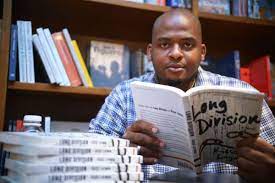 ENGL 402: Writing Longer Fiction
ENGL 402: Writing Longer Fiction
Monday 5:00-7:50 p.m.
>>Instructor: Kiese Laymon
A course in writing of longer narrative forms for advanced fiction writers. The class will be a mixture of discussion of assigned reading, workshop, and one-on-one tutorial. Course counts toward the English Creative Writing Major Concentration (ECRW) and minor (CREW).
Satisfies:
English Creative Writing Concentration (ECRW)
Creative Writing Minor (CREW)
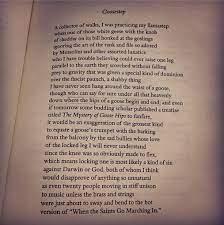 ENGL 404: Advanced Poetry Writing
ENGL 404: Advanced Poetry Writing
Thursday 1:00-3:30 p.m.
>>Instructor: Tomás Morín
An in-depth study of contemporary poetry, this course emphasizes the careful analysis of books by six to eight contemporary poets, the reading of selected essays on poetic technique, and the writing of poems with a view toward finding a personal voice. Course counts toward the English Creative Writing Major Concentration (ECRW) and Creative Writing minor (CREW). Repeatable for credit.
Satisfies:
English Creative Writing Concentration (ECRW)
Creative Writing Minor (CREW)
 ENGL 411: Senior Seminar Research Workshop
ENGL 411: Senior Seminar Research Workshop
Friday 1:00-3:50 p.m.
>>Instructors: Sarah Ellenzweig; Alden Sajor Marte-Wood; Tomás Morín
Taught in the Spring, the Research Workshop is the second course required of senior English majors. It follows from the Fall Senior Seminar. The course is co-taught by three faculty members from different areas of expertise, including one creative writer. The Spring Research Workshop guides the cohort of senior majors from the Fall Senior Seminar (ENGL 410) through the writing stage of their senior projects. In this course, the students will complete their in-depth critical or creative project, begun in the Fall semester. Prerequisites: ENGL 200; ENGL 300; ENGL 410
Satisfies:
Senior requirement for English majors (ENGL) and concentrators in creative writing (CREW)
ENGL 493.000: Independent Study
Spring meeting times are to be determined by an English faculty member and the student (via permission of instructor; credit variable 1-6)
A course designed for students who want to pursue intensive semester-long study of a particular topic. Students must identify and receive the approval of an English department faculty member and complete a special registration form as directed. Registration is by permission of instructor.
ENGL 493.001: Independent Study-Advanced Literary Editing and Publishing
Tuesday 6:30-9:00 p.m.
>>Instructor: Ian Schimmel
ENGL 493.002: Independent Study-R2/Editors-in-Chief
Tuesday 6:30-9:00 p.m.
>>Instructor: Ian Schimmel
Notes:
ENGM: English Minor
CREW: English Creative Writing Minor
ECRW: English Creative Writing Concentration
AD: Analyzing Diversity
*D1: approved for Distribution Group 1
English Department Required Field/s satisfied:
Diverse Traditions: Critical Race; Post-colonial & Gender studies: RPG
Historical foundations: **pre-1800/1900 (**specifically pre-1800)
Meets Rice English major specialization/s:
Culture & Social Change (CSC)
Literature & Literary History (LLH)
Science; Medicine & Environment (SME)
Visual & Comparative Media (VCM)
Seating is limited in all creative writing courses. Registration for odd-numbered sections is restricted to students who have declared the Creative Writing Major Concentration (ECRW); registration for even numbered sections is open to all undergraduate students in priority order.

